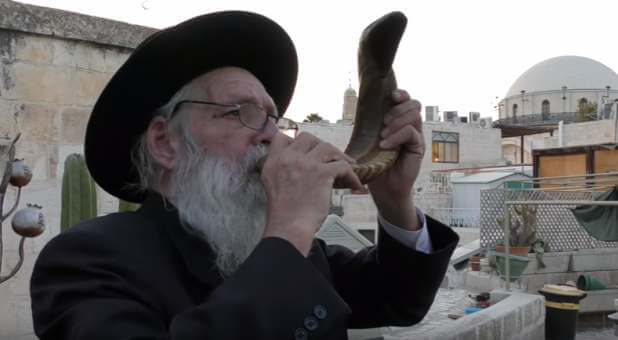Growing up in a Jewish family, I always looked forward to Yom Teruah (Feast of Trumpets), also known as Rosh HaShanah (New Year’s). From my very first time experiencing Yom Teruah, I continued to looked forward to gathering in the synagogue for these special services. For me, these services always held a high level of excitement because on top of the regular things that were done on Shabbat, such as liturgy and Reading of Scripture, on Yom Teruah the shofar would be blown 100 times. From the first time I heard the shofar’s voice, I knew there was something unique about its powerful sound. It was the first time in my life in which I remember experiencing and feeling the presence of G-D in a real personal way. Until today, I still believe that that first shofar’s call was the start of my search for a personal relationship with the G-D of the Bible.
While Yom Teruah was a holy day that I always looked forward, to it was also a day that I hated to see end. I always had mixed feelings as the 100 blasts of the shofar came to a close. It wasn’t because I would miss the sound of the horn. It was because I knew that once the service ended we would begin the counting of days until the one day a year I dreaded: Yom Kippur (Day of Atonement).
Yom Kippur was just the opposite of Yom Teruah. Yom Teruah held an excitement of the shofar with a strong personal and emotional connection with G-D. But Yom Kippur was an excruciatingly long day fill with 23 hours of prayers of repentance while everyone around me did everything they could to look as miserable as possible. As I recited the Al Cheit (all sins) liturgy (how hopeless and lost it made me feel), I remember the rabbi speaking about how we asked for forgiveness for every sin, even if we didn’t personally commit that sin, because if one Jew sinned it was as if we all sinned. I would leave synagogue after the Neilah (Closing the Gates), the last service of Yom Kippur, thinking, Did I make it in? As a young child, that feeling was a weight that totally overshadowed the remembrance of the closeness of G-D during the Yom Teruah service.
The first blast of the shofar on Yom Teruah made me feel as if I was in the very courts of heaven, but the last blast meant it was over and soon it would be Yom Kippur and that feeling of standing in the presence of my G-D would be gone.
Yom Kippur, for me, had become synonymous with hopelessness. No matter what I would do or how I would live, I would never know the feeling of complete confidence that I would spend eternity with G-D in the world to come. Each time I heard the last shofar of Yom Teruah and the shofar sounding during the Neilah service, I was reminded again of the absolute uncertainty of if my name would be found written in the Book of Life and where I would spend my eternity.
It wasn’t until I came to believe that Yeshua (Jesus) was the Messiah of Israel that this all changed for me. Then I understood that the shofar sounding on Yom Teruah was not intended only to bring us a temporary feeling of entering into the heavenly realm, only to end the euphoria by causing our hearts to drop into a state of depression. Yes, these blasts were designed to draw our attention to our need for atonement. But, the shofar wasn’t to draw our attention to ourselves; it was to remind us that ever since Genesis 3:15, “I will put enmity between you and the woman, and between your offspring and her offspring; he will bruise your head, and you will bruise his heel.”
G-D had promised that He would provide victory over sin. And in Genesis 22:8, “Abraham said, ‘My son, God will provide for Himself the lamb for a burnt offering.'”
Now that I know Yeshua as my Messiah, I look forward to that last shofar blast on Yom Teruah, and Yom Kippur has transformed from a day of dread to a day of joy. So, now I can join with all those who believe and rejoice, as Psalm 107:1-2 (TLV) says, :Praise Adonai, for He is good, for His lovingkindness endures forever. Let the redeemed of Adonai say so—whom He redeemed from the hand of the foe.” {eoa}
Eric Tokajer is author of With Me in Paradise, Transient Singularity, OY! How Did I Get Here?: Thirty-One Things I Wish Someone Had Told Me Before Entering Ministry and #Man Wisdom: With Eric Tokajer.
























